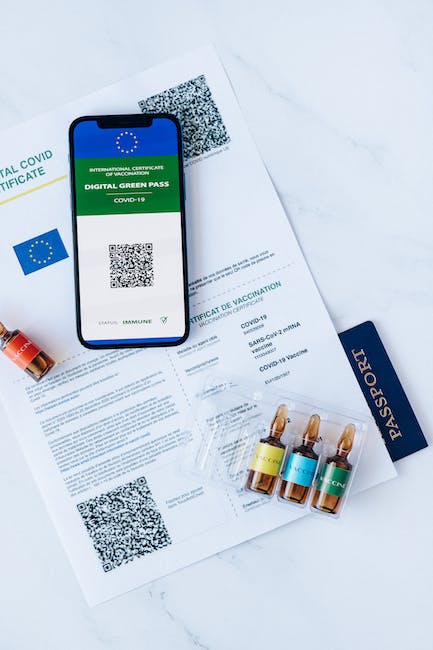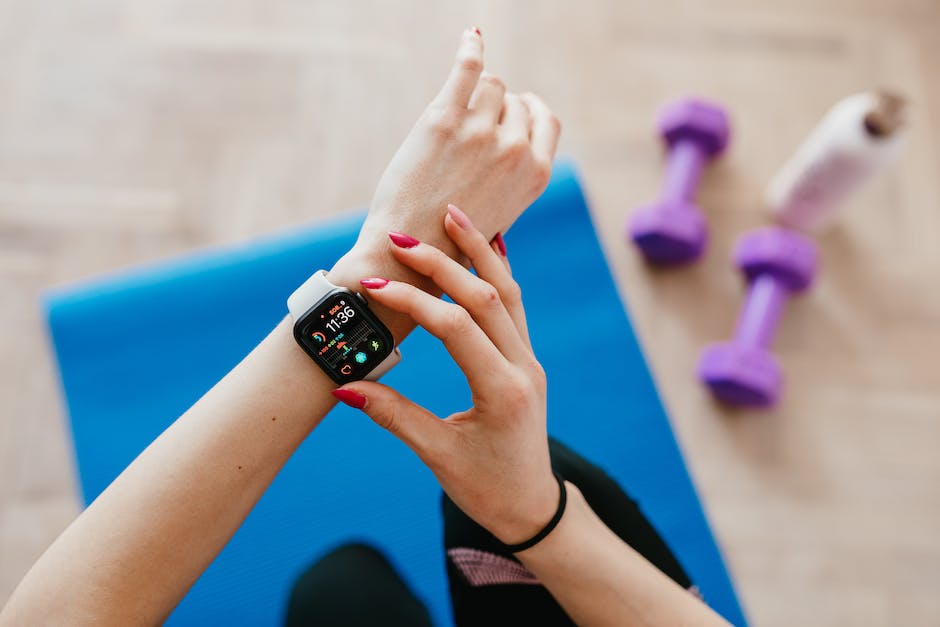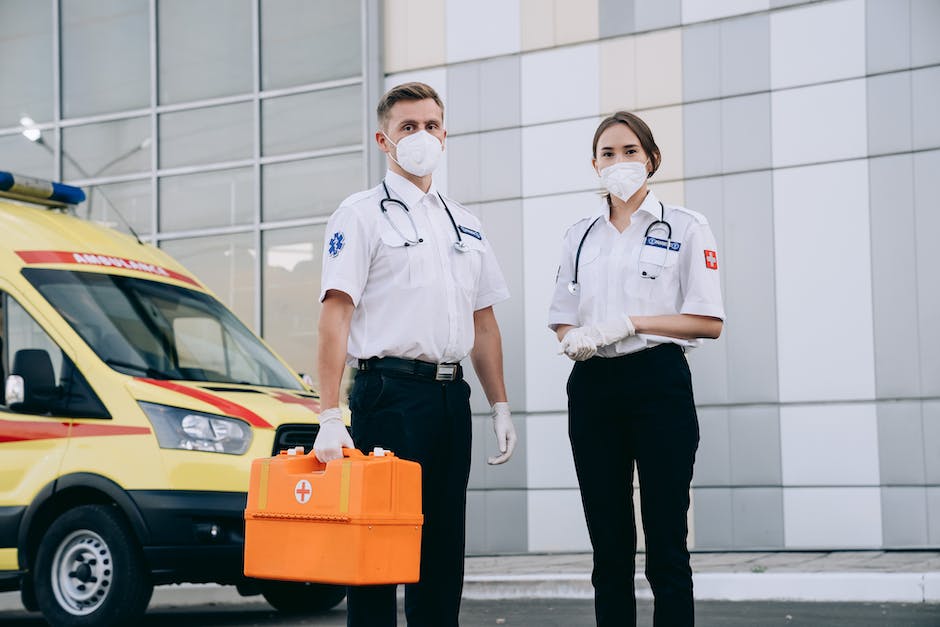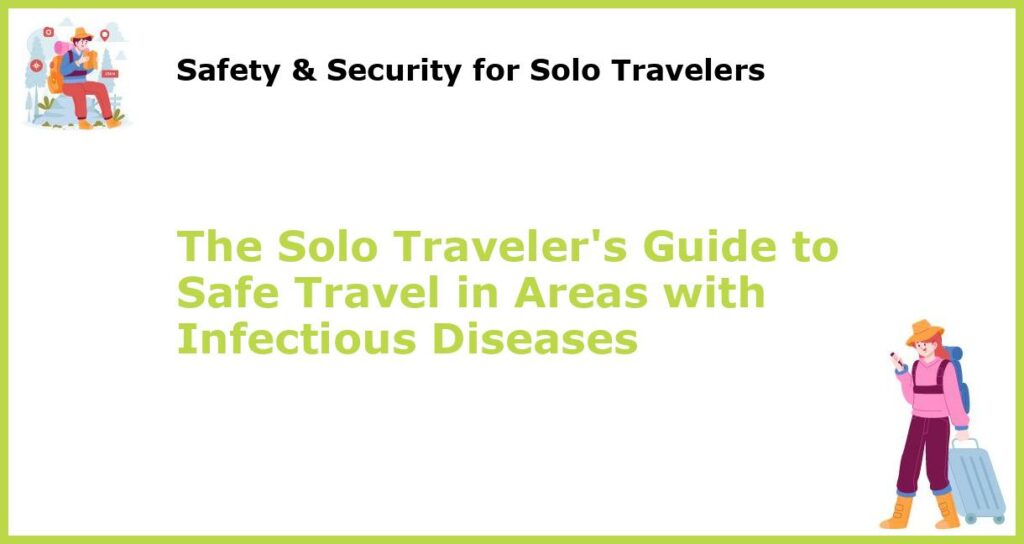Solo travel can be an exciting adventure, but it also puts you at risk for many things, including infectious diseases. Therefore, you need to be well-prepared and take extra precautions while traveling. Before taking off to an area with infectious diseases, you should consider doing a little research and getting some essential documentation. Follow these guidelines, and you’ll significantly reduce the risk of contracting an infectious disease while traveling.
Do Your Research Before You Go

It’s crucial to research the recommended vaccines and medications suitable for the region you’re traveling to before embarking on any trip. It will help if you also schedule an appointment with your healthcare provider well in advance of your journey to receive the necessary vaccinations and medications. The Centers for Disease Control and Prevention (CDC) is an excellent resource for this information. The organization’s dedicated page for travel vaccines provides detailed information regarding routinely recommended immunizations and travel-related vaccines based on your destination country.
Bring Important Documentation

Traveling to an area with infectious diseases requires that you carry essential documentation with you. Always remember to bring your health insurance card with you at all times, along with information about the nearest healthcare facilities and emergency services in the area. Additionally, consider carrying copies of your vaccination records as proof of immunization in case it is required for entry into certain countries.
Practice Good Hygiene

Good hygiene is perhaps the most simple yet effective way to protect yourself from infectious diseases. Always wash your hands frequently with soap and water, especially before eating and after using the restroom. Use hand sanitizer when soap and water are not available. Also, avoid touching your face and mouth with your hands, as doing so increases the risk of infection.
Use Insect Repellent

Mosquitoes and other biting insects can transmit severe diseases like malaria, dengue fever, and Zika Virus. Therefore, it is essential not to forget to pack Insect repellent when traveling to areas where these insects are prevalent. Always choose a product that contains at least 20% DEET, and apply it to all exposed skin. Ensure that you wear long-sleeved shirts and pants to provide further protection against insect bites.
Be Aware of Food and Water Safety

Food and water that are contaminated with bacteria or viruses can cause a range of illnesses, such as diarrhea, vomiting, and fever. When consuming food and water in areas with questionable hygiene standards, take extra precautions. Boil or treat your water with iodine tablets, and avoid consuming raw or undercooked meat and seafood. Stick to bottled water and sealed, commercially packaged foods when possible.
Protect Yourself from the Sun

Many areas with infectious diseases are typically hot and sunny, making it crucial to protect yourself from the sun’s harmful rays. Always wear sunscreen with at least SPF 30, and remember to reapply it every two hours. It would help if you also wore a hat and sunglasses to provide further protection to your face and eyes from the sun.
Be Cautious with Contact

Infectious diseases can also be transmitted through contact with bodily fluids such as blood, urine, and saliva. So, it’s essential to be cautious when coming into contact with other people, especially if they are showing signs of illness. Avoid shaking hands, hugging, or kissing, especially if you are unsure if the person is unwell.
Avoid High-Risk Activities

Solo travel to areas with infectious diseases requires that you take several precautions, such as avoiding certain activities that put you at a higher risk of contracting infectious diseases. Sharing needles or having unprotected sex are high-risk activities that you should avoid. Additionally, you must be mindful of other activities that could put you at risk, such as participating in extreme adventure sports, handling wild animals or being exposed to certain environments that are confined or have poor ventilation.
Be Prepared for Emergencies

Even with the best planning and precautions, emergencies can happen. It would be best if you were prepared for any unexpected illness or injury by carrying a well-stocked first aid kit and any necessary medications. Knowing the location of the nearest hospitals and emergency services is also critical, and having a plan in place for contacting them in case of an emergency is vital.
Stay Informed and Stay Safe

Finally, staying informed is key to staying safe when traveling to areas with infectious diseases. It’s essential to keep up-to-date with the latest news and recommendations from the CDC and other reputable sources. Stay alert for any signs of illness or infection, and seek medical attention immediately if necessary. Always trust your instinct and avoid areas that seem unsafe and unsanitary.








 You might also be interested in those articles related to solo traveling
You might also be interested in those articles related to solo traveling